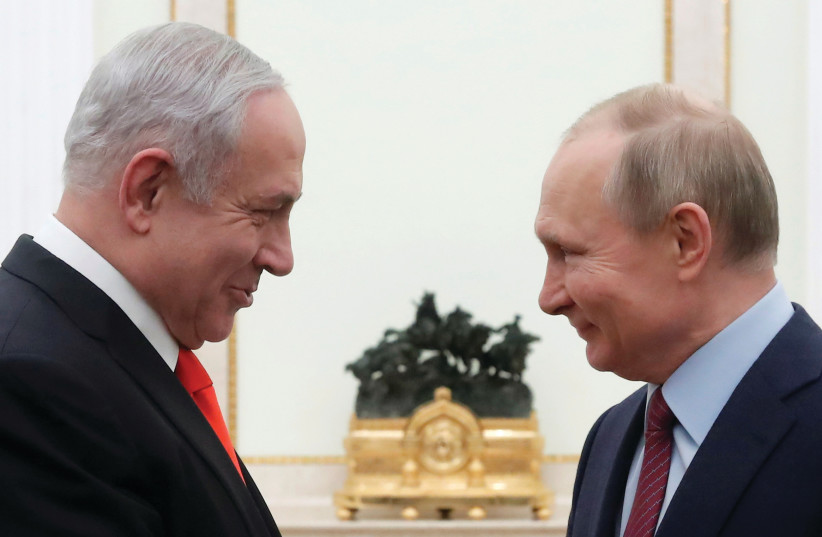Iran inched closer to Moscow, as it completed work on a new treaty and spoke of the necessity of the Gaza ceasefire with Russia, China, and Turkey.
It made those diplomatic moves as the Houthis, Yemen’s Iranian proxy group, said on Tuesday it hit a Norwegian commercial tanker delivering crude oil to an Israeli terminal.
As Moscow moved closer to Tehran, Russian Foreign Minister Sergey Lavrov spoke with Iranian Foreign Minister Hossein Amir-Abdollahian and discussed the strengthening of bilateral ties between the two countries.
They “agreed to expedite the work on completing the coordination of a new grand interstate treaty, which has reached a high degree of readiness,” Lavrov’s office stated.
It followed a visit to Moscow earlier this month by Iranian President Ebrahim Raisi, who met with Russian President Vladimir Moscow in the Kremlin. In light of Russia’s war on Ukraine, Moscow has tightened its military alliance with Tehran. Iran’s Foreign Ministry described that visit as “highly significant,” explaining that it was brought up by Lavrov and Amir-Abdollahian in their call.

Prime Minister Benjamin Netanyahu, who spoke with Putin for 50 minutes expressed sharp criticism of the dangerous cooperation between Russia and Iran. Israel has been particularly concerned about the growing military ties between them.
Iran expands the conflict
Israel is also concerned that Iran’s actions are helping transform Israel’s war against Hamas into a regional and international conflict – as seen in the Houthi attacks on ships in the Red Sea. Amir-Abdollahian, who was in Geneva on Tuesday, held calls with his Chinese and Turkish counterparts to discuss their opposition to the Gaza war.
In a speech to the UN in Geneva, Amir-Abdollahian said that Israel and the United States will never be able to wipe out Hamas, and that Israel could only secure the release of hostages held in Gaza with a political solution to the conflict.
He emphasized that Israel, which has vowed to wipe out Tehran-backed Hamas, could only achieve the return of hostages taken by Hamas during a deadly rampage on Oct. 7 by a political solution.
Amir-Abdollahian was speaking at a meeting alongside counterparts from other Middle Eastern countries.
“All the ministers agree that the strikes by the criminal Israeli regime and the genocide it is committing have to stop immediately,” Amir-Abdollahian said following the meeting.
“The Rafah border crossing has to be open, humanitarian aid has to reach every part of Gaza and the forced displacement of the people of Gaza must stop,” he added. Rafah is the crossing – with Egypt – through which humanitarian aid gets into the enclave.
Israel mounted its assault on Gaza in response to a cross-border raid by Hamas terrorists in which they killed 1,200 people and took 240 hostages in southern Israel on Oct. 7. More than 100 hostages were freed during a short-lived truce last month.
Israel’s assault on Gaza to root out Hamas has killed at least 18,205 Palestinians and wounded nearly 50,000 since Oct. 7, according to the Hamas-run Gaza health ministry. Israel has said that 7,000 of the Palestinian fatalities in Gaza were Hamas terrorists.
Iran’s Supreme Leader Ayatollah Ali Khamenei appealed last month to Muslim states with political ties with Israel to at least cut them for “a limited time”. He had previously called for an Islamic oil and food embargo on Israel.
